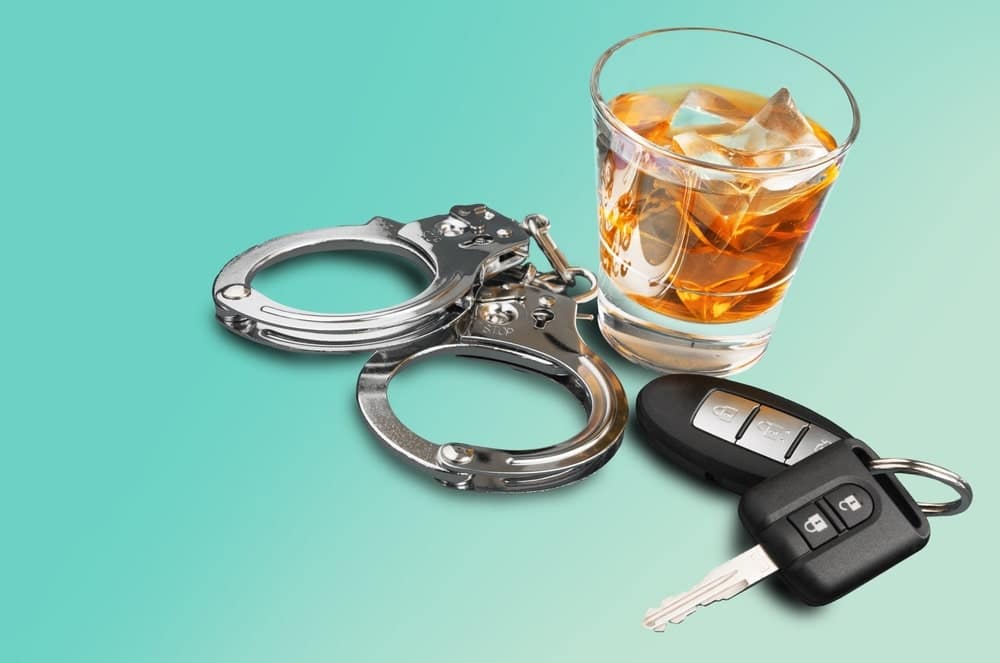Reducing an OUI charge in Maine
OUI charges are handled severely in Maine. For many people, a drunk-driving charge is their first time dealing with the criminal justice system and, understandably, they are keen to know the potential consequences of an OUI conviction.
With an otherwise clean criminal record and robust legal representation, you may be able to reduce the consequences for your future and even get the OUI charge reduced to a charge with fewer consequences.
Let’s look at what that could involve.
Call 207-571-8146 or contact us online to schedule a consult with one of our highly skilled criminal defense & OUI lawyers, serving Southern Maine, today.
Table of Contents
OUI in Maine
An OUI is Maine’s term for a DUI or DWI—terms that you probably know from other states. It means “operating under the influence”. This term draws attention to the fact that you don’t actually need to be driving a vehicle (nor drunk or even over the legal limit) to be charged with a drunk-driving offense in Maine.
You can check the Maine OUI statute for details about the law but we’ll look at some key aspects below.
1st OUI in Maine
Around 80 percent of OUI arrests are for a first-offense OUI in Maine. This means that the person charged has no prior OUI/DWI/DUIs in any state and no refusal to provide a bodily sample in Maine in the last ten years.
First-offense cases (like second offenses) are handled as misdemeanors but if aggravating factors are present a mandatory minimum jail time may still apply. Such factors include: particularly high blood-alcohol content, a passenger under the age of 21, speeding, or causing an accident.
Assuming no aggravating factors are present, a first-offense OUI carries a mandatory minimum penalty of 150 days of license suspension and a $500 fine. After 30 days of no license, the driver can be reinstated if an Ignition Interlock Device (IID) is fitted to any vehicle that they drive for 120 days.
Jail time is very rare for a first offense OUI in Maine, but it should not be discounted— a criminal conviction can show on background checks for life, creating potential long-term implications.
Consequences of an OUI in Maine
The consequences of an OUI become more serious for repeat offenders if they are convicted.
A second OUI within 10 years will mean that driving privileges (via a restricted license) take much longer to be restored, which can severely impact employment. Offenders are also hit with an automatic seven-day jail sentence (twelve days for a refusal), a $700 fine ($900 for refusal), and a three-year suspension of vehicle registration.
A third offense within ten years is treated as a felony, carrying a maximum penalty of five years in prison (minimum 30 days), a $5,000 fine, and two years of probation.
Other potential long-term effects of a criminal conviction include effects on employment, increased insurance premiums, difficulties traveling abroad (even in Canada), and immigration status issues for non-US citizens.
Call 207-571-8146 or contact us online to schedule a consult with one of our highly skilled criminal defense & OUI lawyers, serving Southern Maine, today.
Can an OUI Charge Be Reduced or Dismissed in Maine?
A first-time OUI offender is more likely to be successful with obtaining a reduction or “diversion” than a repeat offender. However, plea deals can even be arranged for repeat offenders in some circumstances.
What’s possible is dependent on the facts of the case, as well as the experience of your OUI lawyer.
The main factors affecting whether we can successfully plead down an OUI charge with a prosecutor are as follows:
- The criminal background of the defendant
- Whether the defendant has previous driving offenses on their record
- The level of cooperation with law enforcement during the investigation
- Whether the defendant refused to take a breath or blood test
- The strength of the state’s case against the defendant (sometimes, issues with the traffic stop, arrest, evidence, test results, or Constitutional rights weaken the state’s case)
- Whether an OUI conviction will result in extraordinary hardship beyond the license suspension, such as the loss of employment
Much depends on how the prosecutor in the case views the OUI charges. With more lenient prosecutors, the option of a lesser charge may be available if no aggravating circumstances are present. Other stricter prosecutors may be less amenable to pleading down the charge.
Plea-bargain options in OUI cases
A first or second OUI offense is a Class D misdemeanor. The purpose of plea bargaining is to reduce the charge to a lesser offense, such as driving to endanger, which is one of the most common plea deals in Maine.
A person is guilty of driving to endanger if the person, with criminal negligence, “operates a motor vehicle in any place in a manner that endangers the property of another or a person, including the operator or passenger in the motor vehicle being driven.”
Driving to endanger is a Class E misdemeanor punishable by up to six months in jail and a $1,000 fine, but jail time is rarely served for a first-time offender. Usually, this offense will result in a fine of below $1,000 and a 30-day loss of license.
On the plus side, this is far less than the 150-day loss of license mandated for a first offense OUI conviction. However, the Bureau of Motor Vehicles will usually administratively suspend a license before the defendant gets to Court. Therefore, it is important to waste no time in challenging the administrative suspension through your OUI lawyer.
Sometimes, prosecutors will agree to remove an aggravating factor against a defendant, so that the penalty is more manageable for the offender (and can prevent a mandatory minimum jail sentence).
However, it should be remembered that pleading an OUI charge down is only possible in some circumstances and with some prosecutors. This will also become more likely if the state’s case is particularly weak. That’s why it’s essential to hire a seasoned attorney to identify and highlight weaknesses in the case against you.
For experienced legal help with any criminal OUI charge, call the Maine Criminal Defense Group at 207-571-8146 for an initial case evaluation.
Call 207-571-8146 or contact us online to schedule a consult with one of our highly skilled criminal defense & OUI lawyers, serving Southern Maine, today.
Blog Posts

Any criminal charge for a drug-related offense is a serious matter in Maine,but how consequential the outcomes can get may depend on whether the charge is filed at the state[...]

Search and seizure rules are enshrined in the U.S. Constitution and are intended to discourage the government (and law enforcement officials) from overstepping their powers and invading people’s privacy. They[...]

When most people think of drug crime classifications, they automatically assume it references the worst types of drugs (heroin, cocaine, LSD, etc.). But the word “drugs” also includes lots of[...]

The State of Maine takes drunk driving and drugged driving (OUI) very seriously. Based on statistical and anecdotal evidence, there are many reasons to believe that driving under the influence[...]

In this post, we will survey Maine’s laws on the possession and trafficking of “scheduled drugs,” and then discuss the classification and possible punishments for drug related crimes. Drug crimes[...]

When people hear the term “drug trafficking,” they tend to think of organized crime. Many Hollywood films feature stories of drug cartels, or mafia drug trafficking involving millions of dollars[...]

A recent traffic stop in Maine bears a sharp resemblance to a traffic stop that the Supreme Court of the United States had decided was a violation of the Fourth[...]

One of the most polarized and confusing aspects of the American criminal justice system today has to do with marijuana. In the past 20 years alone, 28 states in the[...]

While policy decisions from the White House have been vague or difficult to follow, the new statement on the enforcement of federal drug laws is pretty clear: The Department of[...]

Out of all of the cabinet appointments that president-elect Donald Trump has made, none is more important to the freedom of the people of Maine than that of Senator Jeff[...]


